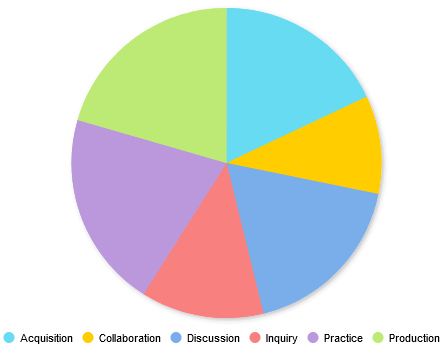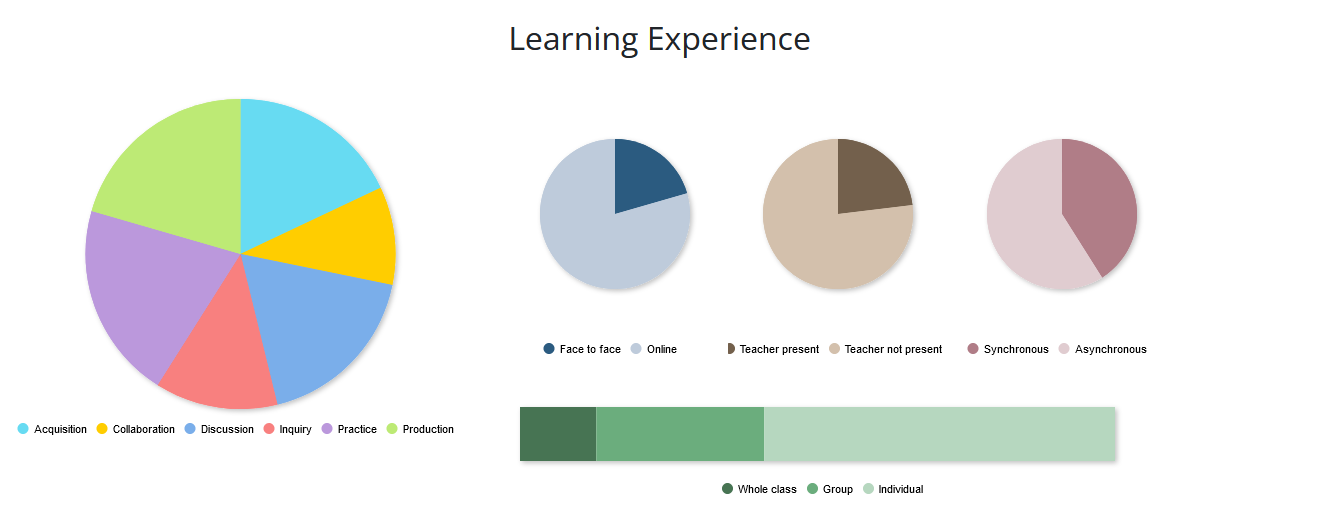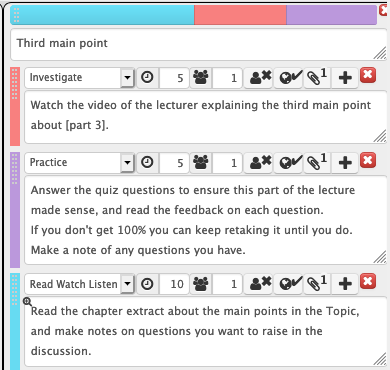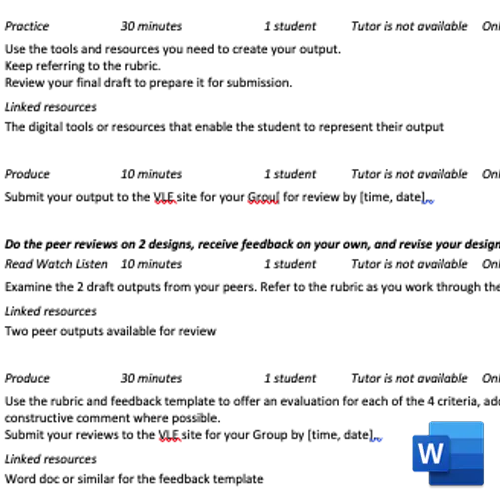Take our course for teachers in all sectors 
Explore what the Learning Designer tool offers as part of "Blended and Online Learning Design", a free online UCL course on FutureLearn, for teachers in all sectors.
A visually structured approach to learning design
to think through and support your students’ learning
Express the details of your pedagogy
using research-based pedagogic properties
As you design each step of the session you can specify the type of learning activity, duration, group size, teacher presence/or not, online/or not, synchronous/or not, and any resources to be attached.
The ‘designed time’ is tracked, along with pie charts and bar charts showing the nature of the learning experience you’re designing, in the Analysis tab.
This helps you review and revise your design.
Create designs from scratch or adapt those of others
in a library where every teacher can publish to and share with colleagues.
The Browser screen categorises existing designs according to pedagogic approach, education sector, topic area, and project needs. You can also search by keyword.
When you select a design and "turn editing on" it becomes yours to edit and adapt, stored in "My designs".
Once drafted, you can share your design by sending its url to a colleague, or publish it by placing it in 'My designs public space', or export it to Word to share it with colleagues and students.

Analyse the student’s learning experience
see feedback on the students' learning experience you've designed.
Try it out - see how you’re supporting your students’ learning
The pie-chart shows the relative study time proportions for the 6 types of learning you have designed into your session. They are derived from Laurillard’s Conversational Framework (see Guide). The more types of learning, the more different ways students process the concepts and skills.

Ways of expressing the learning experience you created for your students
You build up your design for a set of intended learning outcomes, deciding for each step on the type of learning, its duration, the group size, teacher presence/or not, online/or not, synchronous/or not, the resources that need to be linked, and the guidance to the student.

Export to Word and share your design with colleagues
If you export the design to Word it is easy to discuss with colleagues, or give to students to show them what’s coming, or invite their feedback on how it went - use the Notes in each panel, to ask them to comment on that part of the design.
